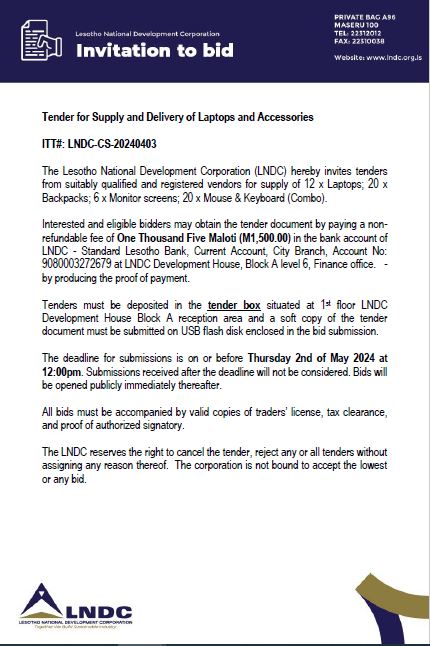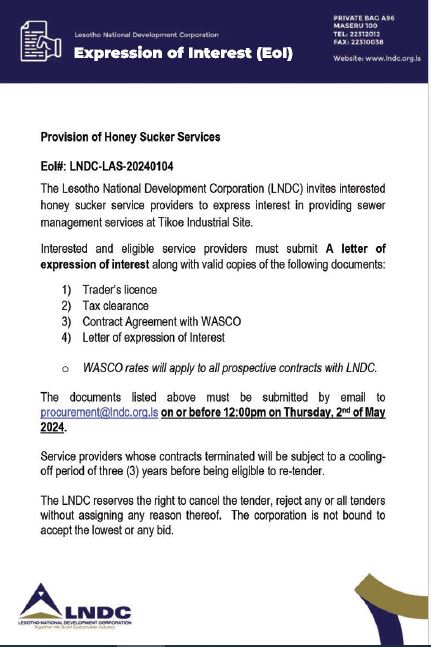Matšeliso Sehloho.
With the rapid increase in the rate of unemployment and numbers seemingly on a daily increase, the Ministry of Social Development in collaboration with assistance of the European Union (EU) and the United Nations Children’s Emergency Fund (UNICEF) has donated $5.5 million (about M82million) to help poverty stricken children in the country.
TÅ¡akholo in the Mafeteng district is among the places that will benefit from the fund, and with the help of EU and UNICEF, 6500 more families will receive an emergency cash transfare, that will allow them to meet basic and immediate households needs for their children.
Speaking at the event of the launch of the initiative in TÅ¡akholo, the Minister of Social Development, Minister ‘Matebatso Doti, thanked the funders for helping the poverty-stricken community and especially expressed her gratitude to the EU and the UNICEF for an act she termed “a miracle”.
She urged the community to use the money to strictly help children and not for any other use.
“May you use this money wisely and my plea is that you should use it to aid you all with your daily needs” she warned.
Doti further urged the community to not be deceived by hear-says and misconceptions that mislead them concerning the COVID-19 vaccine.
“When the vaccine finally lands to the community let us all go get vaccinated and not be misled” exclaimed Doti.
For his part, EU Ambassador Dr Christian Manahl, urged the community to protect themselves and others, and also spoke of the importance of adhering to COVID-19 preventative protocols.
“We can only defeat the pandemic together, the EU support comes in solidarity with the population of Lesotho, but also presents the importance of working together, as only together we can defeat the pandemic,” said Manahl.
He also went on to allay the fear of the community regarding the vaccination campaign which was launched this week in an effort to fight the Covid-19 pandemic, saying it was understandable for people to be fretful since this kind of initiative is new as is meant to deal with a new phenomenon and thus encouraged them to empower themselves with facts-based scientific information.
“If we all work together we can defeat this pandemic,” Manahl said.
Anurita Baines, the UNICEF Representative, said that they had given aid to try and decrease the number of vulnerabilities due to the COVID-19 pandemic.
She pointed out that the period spanning 2020-2021 has been a challenging and most difficult one for Lesotho as over 750 000 people countrywide were food insecure and in dire need of support and help, and almost half a million were chronically poor according to the Nation Information System Assistance.
“These figures are against a backdrop of an already relatively slow decline of the national poverty rate by less than seven percentage points, it’s likely that due to COVID-19, any anticipated further decline in poverty rate will be slowed” Baines explained.
Among the many problems and hardships Basotho families have encountered during the lockdown, are loss of jobs, and a significant increase in food prices. Baines further explained that the loss of jobs for adults has had a profound impact on the children.
She pointed out that reports indicate that no less than 20% of Basotho every household has had at least one adult who has had to spend the whole day without a meal. Furthermore, she stressed that the food insecurity of children has a deep impact on their nutritional status and wellbeing.
She said that while efforts have been made by government to support the continuity of learning through different portals, the learning and growth that takes place in schools, including the school meals for many children could not be replaced.
“Most importantly, it means we can support the immediate and urgent needs of the households and children, so that after a year of challenges and difficulty, they can be supported for good health and, to return to school and learn, develop and thrive” Baines said.






